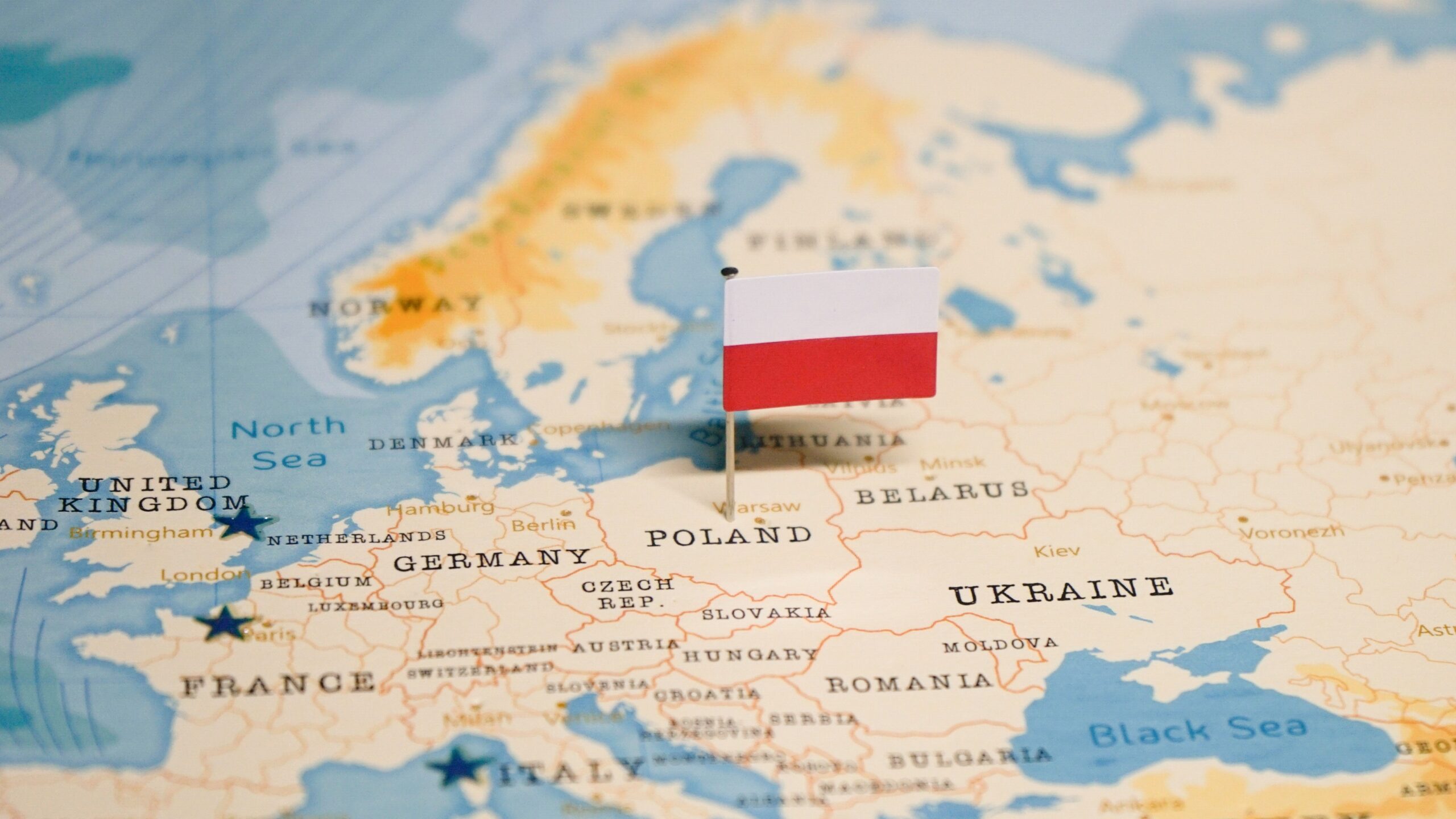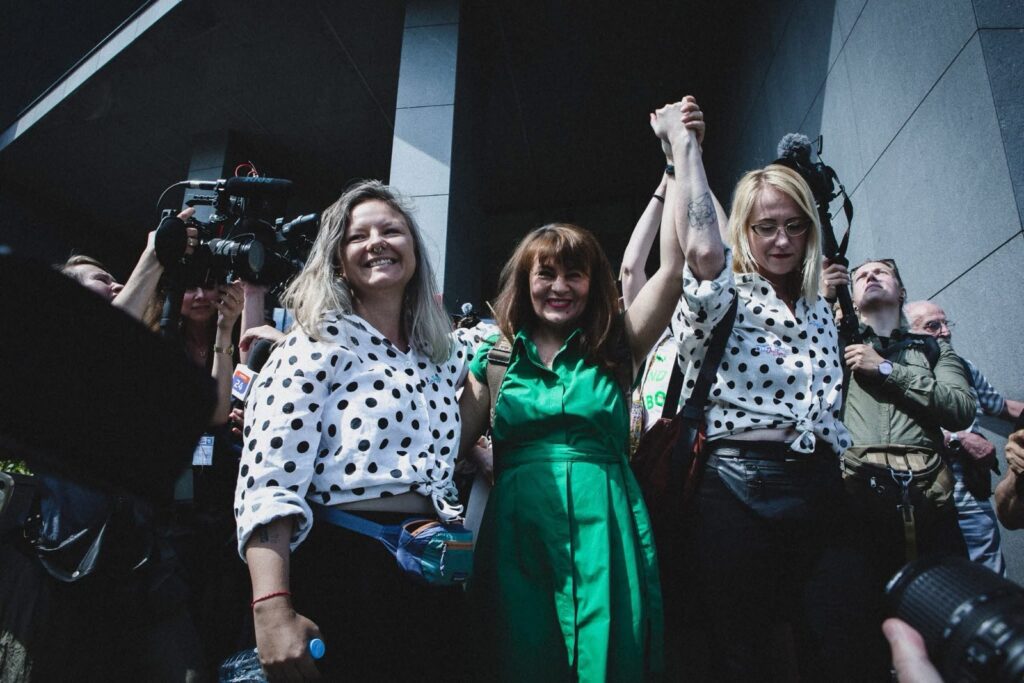Solidarity on Trial: The Criminalization of Abortion Activism in Poland
The prosecution of Justyna Wydrzyńska, a Polish abortion rights activist who sent abortion pills through the mail, marks a pivotal moment in the global struggle for reproductive justice.

Published
Authors
Share
The prosecution of Justyna Wydrzyńska, a Polish abortion rights activist who sent abortion pills through the mail, marks a pivotal moment in the global struggle for reproductive justice. Her trial exemplifies how states use legal mechanisms to punish acts of solidarity rather than providing needed services and guaranteeing rights.
In Poland, an estimated 100,000 to 150,000 abortions occur annually, despite restrictive laws. Organizations like Abortion Without Borders (AWB) and Abortion Dream Team (both led by Natalia Broniarczyk, one of this post’s authors) and Women Help Women (led by one of Kinga Jelinska, one of this post’s authors) have stepped in to support those seeking safe abortion care, yet activists like Justyna face criminal charges for providing life-saving assistance.

While legal restrictions have existed since 1993, a 2020 Constitutional Tribunal ruling eliminated fetal impairment as a legal ground for abortion, further limiting already scant options within the formal health care system. In 2024, only 896 abortions were performed in Polish hospitals — less than 0.5 percent of all abortions in the country — while the majority took place outside the ‘formal’ system with support from feminist organizations and cross-border networks.
Polish politicians have continually failed people who need abortions and those who support them. Donald Tusk’s Civic Coalition made explicit campaign promises to decriminalize abortion assistance and ensure access to free, safe, and legal abortion within 100 days of taking office. However, more than a year into his leadership, these promises remain unfulfilled. Meanwhile, activists continue to be prosecuted for stepping in where the government has failed.
The Case of Justyna Wydrzyńska
Justyna Wydrzyńska’s case underscores the cruel absurdity of Poland’s abortion laws. In 2020 she mailed abortion pills to a woman trapped in an abusive relationship who was unable to travel abroad. Police intercepted the package by request of the woman’s husband. As a result, the woman was forced to use unsafe methods, barely surviving. Instead of recognizing Justyna’s actions as ones of solidarity and harm reduction, the Polish state prosecuted her for “aiding an abortion.”
In 2023, she was sentenced to eight months of community service, a ruling that sent shockwaves through reproductive justice movements worldwide.
In February 2025, the Warsaw Court of Appeals overturned Justyna Wydrzyńska’s conviction, ruling that her original trial had been fundamentally flawed due to the lack of judicial independence. But the decision did not end her ordeal. The case now returns to the lower courts, leaving open the possibility of a retrial.
During the hearing, Judge Ewa Leszczyńska-Furtak offered a striking rebuke of the state’s failure: “Citizen self-help proliferates where, despite its clear duty, the state — as the public authority responsible for the protected sector in question — does not act.” The appellate court underscored that the supposed “social harm” of Justyna’s actions must be reconsidered, particularly given the context of state neglect. As of now, it remains unclear whether the prosecution will drop the charges or compel Justyna to stand trial again.
Who harms?
The person who received the pills said, “[i]n this case, in my opinion, there was a reversal of values. Helping … turned out to be punishable, I don’t think that was the purpose of the social contract … I want people to know how much Justyna helped me.”
“Helping another person who needs this help should never be a crime, regardless of whether it is to give someone a cup of soup, a warm jacket or abortion pills,” said Justyna at the hearing in February 2025.
A crucial aspect of this case is the well-established scientific consensus that self-managed abortion with pills is safe and effective. The World Health Organization (WHO) explicitly recommends self-managed abortion as a safe and viable alternative when people have access to accurate information and a reliable source of medication. The WHO affirms that mifepristone and misoprostol can be used without direct medical supervision, making them a critical tool for expanding access to abortion, particularly in restrictive settings like Poland.
In 2024, Abortion Without Borders supported 47,000 people in accessing abortion care, with 44,500 managing their abortions in the first trimester and 1,350 in the second trimester; Women Help Women quietly became the country’s largest single provider of abortion care. Rather than causing harm, those providing these medications are enabling access to safe, evidence-based health care.
The real danger lies in state inaction and repression.
Criminalizing Solidarity: A Global Issue
Across the world, governments have used legal systems to punish those who help others exercise their reproductive rights. The United Nations Special Rapporteur on Human Rights Defenders has consistently affirmed that abortion rights activists should be protected, not prosecuted.
The fight for reproductive justice in Poland will not be won through political concessions or half-measures. The state has shown its inability to provide adequate reproductive health care; it is the activists who have stepped in and built an alternative system of care that operates with or without legal recognition.
Justyna Wydrzyńska’s case is part of a larger, global struggle for reproductive freedom. It is not the state that grants rights — it is the people, through resistance and solidarity, who reclaim them. The work of abortion activists is not secondary to state action; it is the frontline of progress. Until governments recognize this, the movement will continue, stronger than ever, refusing to yield to unjust laws and political inertia. Activists are not passive actors waiting for legal change — they are the architects of a future where reproductive rights are fully realized.


